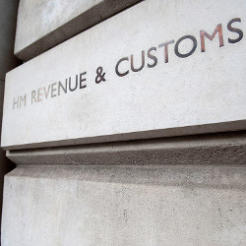As of today, charities must use the new shorter model gift aid declaration template, but sector bodies say they still have concerns.
The new declaration was first published in October 2015, and HMRC encouraged charities to start using it then. The new declaration removed unnecessary references to VAT and council tax, and contains a clearer call to action which demonstrates the value of making a gift aid claim.
HMRC made the decision in January to allow charities with existing stocks of Gift Aid Declarations, those printed before 21 October 2015, to use those before using the new declaration. Once they have run out, they will need to switch to the new declaration.
As well as written declarations, oral declarations and retail gift aid declarations will all have to change to include a sentence making clear that the donor is responsible for paying any shortfall of tax on donations (or the sales of proceeds of donated goods).
The declaration form is only a model, so if charities have concerns about the wording they are able to change it. They must still, however, make it clear that the donor is responsible for paying the shortfall.
Sector concerned it could put off donors
The Charity Tax Group said it had hoped HMRC would publicise the new model declaration more widely, and remains concerned that some smaller charities may still be unaware of the changes.
Chris Lane, policy adviser at CTG, said that they hoped that HMRC will take a “common sense approach if they come across old declarations over the next few years”. He added that charities using old stocks should certainly try to keep records of when they were printed and make sure any online materials are up-to-date.
Lane added: “In terms of the declaration itself, we welcome the fact it has been simplified and that our calls for irrelevant references (such as VAT and Council Tax) have been removed and there is positive introduction highlighting the value of gift aid.
“The downside is HMRC’s insistence on introducing additional text to make it clear that is the donors ‘responsibility to pay any difference’ where there has been insufficient tax to cover the donation. While we understand the need to ensure that gift aid is claimed correctly there have been concerns about this wording having a chilling effect on donors and this will need to be monitored closely.
Andrew O’Brien, head of policy and engagement at the Charity Finance Group, said that they welcome the shorter declaration, but also have some concerns about some of the additional wording.
He said: “We remain concerned about the additional wording that donors are responsible to pay any difference between the amount of tax they pay and their donation. Research indicates that this will not put off ineligible donors but may make eligible donors think twice, potentially cancelling out the benefits of a shorter declaration.
“We will be watching the implementation of this declaration carefully to see what impact it has on gift aid claims. At a time when charities are operating in a tough financial climate, we need to be maximising the value of gift aid.”









